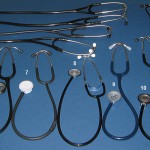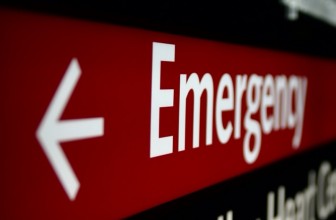
Each state in the United States has a specific board for managing medical or healthcare professions like nursing. In the state of Maryland, the Maryland Board of Nursing is the main authority that regulates or manages nursing jobs. Maryland is home to more than 5 million people and is largely recognized for its health care delivery systems that are well-structured and comparatively better even with the shortage of nurses currently experienced in the nation. Definitely, Maryland is a great state to settle down as a nurse due to the financial rewards and various opportunities for growth.
Contents:
- MD Board of Nursing Functions
- MD Board of Nursing Responsibilities
- MD Board of Nursing: Becoming a Nurse in Maryland
- MD Board of Nursing Education Requirements
- MD Board of Nursing: Baccalaureate Degree in Nursing
- MD Board of Nursing Licensure
- MD Board of Nursing: Nurse Practice Act
MD Board of Nursing Functions

MD Board of Nursing’s key function is to promote nursing practice in the state. The core mission of the Maryland nursing board is to advance safe health care services and quality care through skilled and qualified nurses who are licensed, certified, well-educated and accountable for public protection. The board provides a wide range of services to individuals aspiring to become a nurse or are already employed as nurses in this state.
The MD board of nursing functions comply with the “Maryland Practice Act, Health Occupations Article, Section 8”. The board enforces all important amendments and regulates key nursing laws. The nursing board is, therefore, responsible for regulating and managing the practice of Licensed Practical Nurses, Certified Nursing Assistants, Registered Nurses, and Advance Practice Registered Nurses. Other than nursing, other healthcare professions are regulated under this board’s supervisory authority. These roles include Certified Medication Technicians, Licensed Direct-Entry Midwives, and Licensed Electrologists. Without well-defined service standards and nursing rules, it is hard to maintain safety and quality in any medical institution.
As for membership, the MD Board of Nursing consists of 13 members: 8 Registered Nurses (RNs), 3 Licensed Practical Nurses (LPNs), and 2 consumers.
MD Board of Nursing Responsibilities

One key responsibility of the MD Board of Nursing is to ensure all nurses that join the field are licensed and well-equipped with the proper qualifications. The board usually conducts the NCLEX-RN/LPN licensing examination that is designed to assess if a student is ready for the professional scope of nursing. The exam is also a mandatory procedure in all other states. Core functions of MD nursing board include:
- Accepting certification applications
- License renewal
- Multi-state license verification
- Handling complaints & investigations
- Nurse practice acts & regulations
- Supervising all nursing practices or occupation
- Setting regulations & standard procedures
- Certifying Advanced Practice Nurses (APNs)
- Approving nursing programs
- Publishing changes in various nursing laws
MD Board of Nursing: Becoming a Nurse in Maryland

The state of Maryland can be a good place to practice nursing and pursue a great career in the scope of healthcare. An entry-level nurse can easily make more than $21,000 here. First, one must acquire a degree in nursing and nursing training. Various certified nursing schools in Maryland offer a range of nursing programs and courses to aspiring nurses. Nurses who hold a degree in nursing in another state and need to be a nurse in Maryland should either take licensing examinations or apply for a multistate license here.
MD Board of Nursing Education Requirements

The MD Board of Nursing requires students to take the NCLEX-LPN/RN exam in order to be fully licensed.
LPN Education Requirements
High-school education is the foundation for becoming a Licensed Practical Nurse (LPN). The prospective LPN must enroll in any practical nursing program approved by the MD board or any similar program approved by the nursing board in another state. There are 13 practical nursing programs offered in Maryland that you can choose, all offered in community colleges. Twelve of the programs take one year to complete with prerequisite courses that allow graduates to complete the Associate Degree RN program. On graduating any of these practical nursing programs, graduate is eligible for LPN licensure. The Licensed Practical Nurse is prepared to provide direct care as supervised by other licensed healthcare professionals primarily in well-structured settings such as nursing homes, hospitals, and chronic care facilities.
The LPN programs have 40-46 credits. Once the candidate meets all the requirements, the candidate is eligible to sit the NCLEX exam. A fee of $200 is charged for the exam, and is paid to Pearson VUE. Also, a fee of $57.25 is associated with the background criminal check.
For endorsement candidates, the endorsement application may be completed online. In addition, a passport style photo and an email address are required. A criminal background check is also done. An application fee of $140 is charged for both a permanent and temporary license and $100 if you require a temporary license only.
RN Education Requirements
A prospective registered nurse (RN) must enroll in a certified program. Generally, MD Board of Nursing approves programs offered within the state. There are various in-state RN programs at both BSN (Bachelor of Science in Nursing) and ADN (Associate Degree in Nursing). Out-of-state programs can be approved if they are significantly equivalent. Students from the out-of-state programs that aren’t equivalent may require a preceptorship.
Students enrolling in Maryland clinical programs are required to be approved as Certified Nurse Assistants (CNAs) as they complete requirements, as well as a background check. A licensed practical nurse can opt for an RN or LPN program. There are only two online LPN/RN programs that the MD Board of Nursing will accept:
- Indiana State University (Baccalaureate Level)
- Chamberlain College Of Nursing (Associate’s Degree)
RN endorsement candidates can apply online. A fee of $100 is required for an application and an additional $40 for a temporary license.
MD Board of Nursing: Baccalaureate Degree in Nursing

The Baccalaureate Degree is offered in 8 Maryland universities and 4-year colleges. These programs last for 4 years providing a BSN degree or a BS degree and a major in nursing. Graduates are authorized to sit the NCLEX-RN licensing examination. On completion of these programs, graduates are prepared to offer care to communities, families and individuals in illness and wellness settings providing comprehensive healthcare services. They are also prepared to take positions of responsibility and leadership in various practice settings, as well as to join a graduate school for Masters Degree in Nursing with a specialization in various nursing disciplines.
Applicants should meet the nursing program’s entrance requirements as well as of the university or college. The program generally consists of 2-years in general education courses that concentrate in the humanities, physical and social sciences. Another 2 years focus on offering general education courses in both clinical practice and nursing theory. Supervised clinical practice takes place in clinics, hospitals, community health agencies, plus other healthcare delivery areas. Beginning research techniques and professional issues are also included in the curriculum.
Currently, there are 14 ADN programs offered in Maryland. These programs take 3 years to complete and consist course work in nursing and general education. Graduates are authorized to sit the RN licensing examination. The ADN registered nurses are prepared to provide care in various settings, and work with professional nurses and health care team members in planning & implementing comprehensive medical care. Applicants should meet all the nursing program’s entrance requirements as well as those of the community colleges. The curriculum consists of 65-70 credits in the sciences, humanities, and nursing major.
Please note, a student who fails the NCLEX attempt is required to wait 45 days to make another attempt. The MD Board of Nursing allows graduates of RN programs to be tested, and licensed, at the practical nursing level.
MD Board of Nursing Licensure

The MD Board of Nursing offers licensure for registered nurses and licensed practical nurses either through:
- Licensure by exam
- Licensure by endorsement
Licensure by Exam
Any Licensed Practical Nurse or Registered Nurse who applies for licensure and lives in the Multi-State Licensure Compact member state should sit their home state’s NCLEX exam. The Maryland Nursing Board is required by the NPA (Nurse Practice Act) to enforce the following regulations:
- A licensed practical nurse or registered nurse can have a license in just one-party state at a time and the licenses should be issued from the licensee’s home state.
- Applicants for licensure by exam in Maryland should submit enough evidence to the nursing board that the primary state of residence of the applicant is Maryland or any other state that isn’t a part of the compact.
- Applicants whose primary residence state is a party state, other than Maryland, aren’t entitled to a license examination as an LPN or RN in Maryland.
Licensure by Endorsement
The MD Board of Nursing requires all applicants for temporary licenses to use a permanent mailing address to complete the licensure application. This is necessary for licensees who aren’t going to live in Maryland for a long period of time.
If you are applying for an LPN or RN license and you recently had a Maryland license that is currently listed as Invalid, Inactive or Non-Renewed, you should request a license renewal from the Maryland Board of Nursing. If you have never had a Maryland license, but you hold an active license in any other state, you should go on with the process of endorsement.
MD Board of Nursing: Nurse Practice Act


The updated MD Nurse Practice Act & Regulations can be acquired from the Division of State Documents, by telephone or by the internet. MD Board of Nursing laws & regulations can be found online by searching for COMAR (Code Of Maryland Regulations) and Annotated Code Of Maryland. The Maryland Nursing Board no longer provides the annually updated Nurse Practice Act printed copy.
SOURCES:
www.nurseops.com









